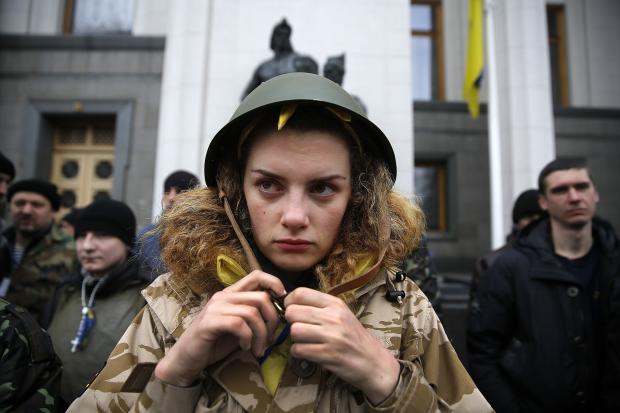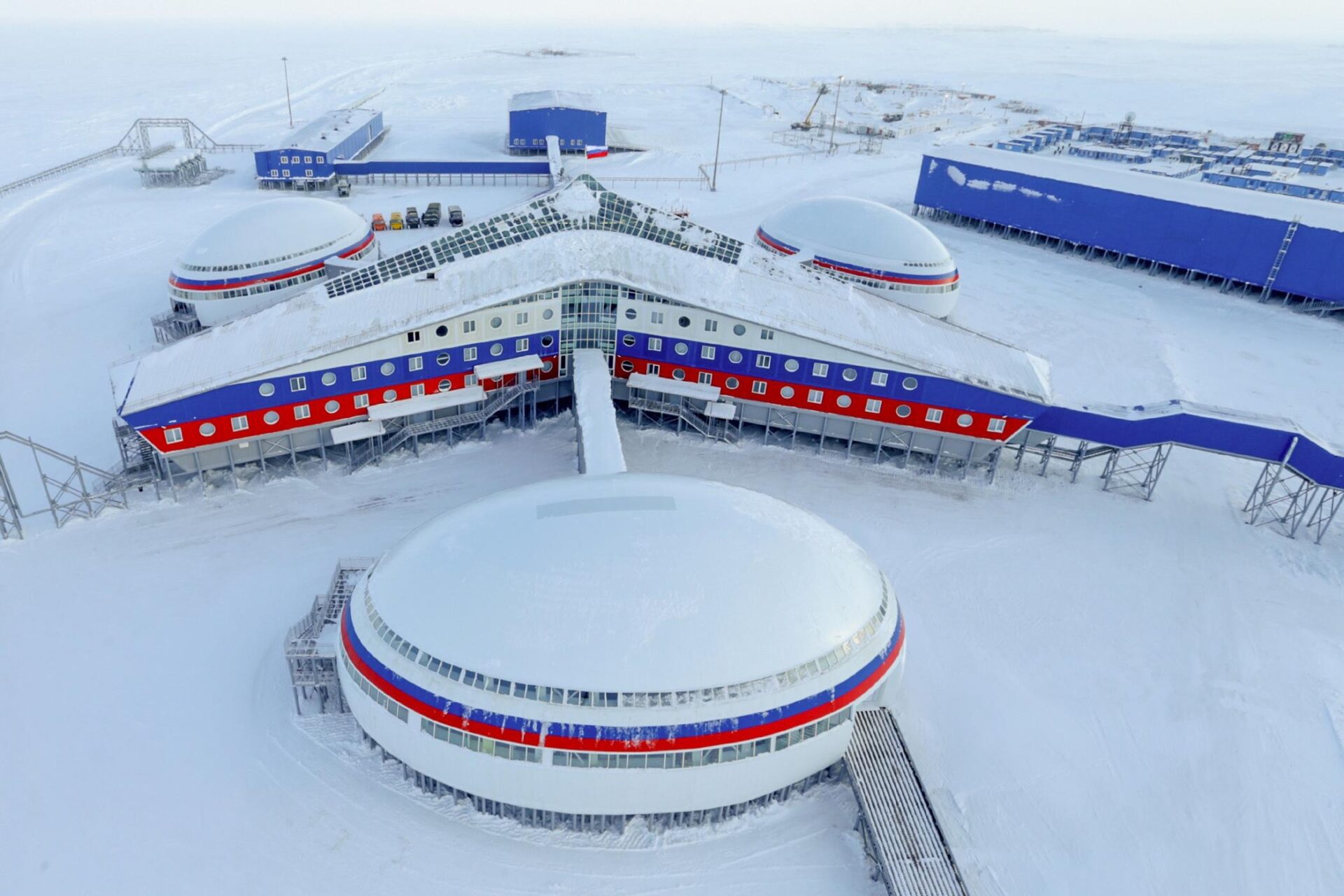
Russian Efforts to Derail Ukrainian Mobilization Campaign
Russian Efforts to Derail Ukrainian Mobilization Campaign
In view of the most recent escalation of the military conflict in its eastern regions, Ukraine has launched a nation-wide mobilization campaign meant to boost the number of the country’s military personnel by 100,000 to a total of 250,000. To be deployed in three waves, the campaign started on January 20. As of February 6, 100,000 reservists were notified of the draft, 58,000 have undergone medical examinations, and 16,000 have already been mobilized (President.gov.ua, February 6). However, even before the call-up could begin, another process had already started: Russia’s large-scale information campaign aimed at derailing Ukraine’s planned mobilization.
On January 17, a Ukrainian freelance journalist, Ruslan Kotsaba, released a 13-minute video address to Ukrainian President Petro Poroshenko, in which he refused to “go to the civil war to kill my compatriots,” and declared his preparedness to “serve from two to five years in jail” for dodging military service (YouTube, January 17). The journalist’s message was a bombshell, given that he had previously reported from the frontline for domestic media outlets and is mainly based out of the western Ukrainian city of Ivano-Frankivsk, whose residents are generally considered extremely patriotic. Later, Kotsaba backtracked a little, stating that he would “be the first” to join the army, if the authorities in Kyiv declare martial law in the country, clearly identify Ukraine’s enemy, and break diplomatic relations with it. “And the production of wafer rolls by the two new process lines of the Lipetsk-based Roshen pastry plant [owned by Petro Poroshenko in Russia] should at least be suspended,” he added (BBC News–Ukrainian service, January 20).
By then, however, Kotsaba’s video had already been taken up as a pretext to trigger an online media action called “Mobilization Kills” (imitating the famous “Smoking Kills” informational campaign), intended to torpedo the government’s planned conscription drive (Ukrayinski Novyny, January 19).
The person behind the “Mobilization Kills” campaign was identified on the Internet as Yuriy Vakulenko. Although this Vakulenko had earlier locked his online media profile (Google Plus, accessed February 9), Ukraine’s only public figure of the same name is the Russian-born director of the Kyiv National Museum of Russian Art (Kmrm.com.ua, accessed February 9). Vakulenko became notorious in 2011 for attempting to raze the building of the National Restoration Center and replace it with a block of residential apartments (T-pravda.net, October 17, 2011), as well as for his collaboration with the Party of Regions during the 2012 local elections (Zhzh.info, October 12, 2012).
As the “Mobilization Kills” media action ramped up, inhabitants of Ukraine’s eastern regions began receiving thousands of online invitations to seminars and meetings against the planned call-up. All of them were sent from the same IP addresses. The Ukrainian Internet became drowned in propaganda materials demonstrating killed and captured Ukrainian soldiers, intimidating potential conscripts and their parents. As described by Ukrainian volunteer Roman Donyk, “In addition to the shooting war, there was an ideological one waged, as well. And the sabotage of minds is more frightening than a blown bridge…” (Facebook.com, January 28).
The online propaganda campaign, coupled with the unprovoked, full-scale armed offensive of the Moscow-backed separatists and Russian troops (that came after several months of low-level hostilities), has now fully elaborated Moscow’s plans: to round up and defeat Ukraine’s forces in Donbas (eastern region encompassing Donetsk and Luhansk provinces), while preventing the planned mobilization of new Ukrainian reserves (see EDM, February 2). As noted by Kyiv-based social psychologist Oleh Pakalchuk, the Kremlin-designed operation to frighten and distract Ukrainians has involved several facets. These have notably included broadcasting images on TV of humiliations, torture and murder of captured Ukrainian military men, as well as the shelling of residential blocks of eastern-Ukrainian cities such as Mariupil. This coastal city, in particular, shelters many Ukrainian citizens who had fled separatist-occupied territories in Donetsk and Luhansk (Pravda.com.ua, January 26).
Success in derailing Ukraine’s mobilization campaign would provide Moscow with an even stronger negotiating position from which to impose its peace terms on Kyiv. And Ukraine’s failure to strengthen its army and hold off the enemy would almost certainly force Kyiv’s military capitulation. Such an outcome, in turn, could provoke further political unrest in Ukraine and, quite likely, result in a new revolutionary regime change.
On the contrary, further successful development of Ukraine’s armed forces—and more broadly speaking, its entire military and industrial sector—would enable Kyiv to proceed with an all-encompassing defense of its frontiers, thus returning a significantly greater level of agency to the Ukrainian government in shaping and modifying its security and foreign policy agenda (Hvylya.net, January 26).
With such contradictory outcomes at stake, Moscow continues to heighten its efforts to politically destabilize Ukraine. Thus, Anatoliy Oliynyk, the governor of Vinnytsia province (central-western Ukraine) accused the Russian special services of orchestrating the seizure of administrative offices in the administrative capital (Vinnytsia) in December 2014 (Facebook.com, December 6, 2014). Russian agents apparently tried to undertake a similar operation in Zaporizhzhya, this past December (Pravda.com.ua, December 10, 2014). And in Kyiv, this February, the Russian media falsely reported that the Ukrainian presidential administration building had been stormed by a mob (RT, February 3). With Russia’s powerful presence within the Ukrainian media landscape, the Kremlin has been trying not only to derail Ukraine’s latest mobilization effort, but also to undermine the Ukrainian government itself, so as to inspire anti-government protests in Kyiv.
So far, these subversive Russian propaganda efforts appear to be backfiring. Ukrainian soldiers on the front lines continue to show sacrificial bravery as they defend their positions. And since the government announced its latest conscription drive, more than 3,700 young men have rushed to voluntarily sign up for military service—although a little over a quarter turned out to be unfit for military duty due to health reasons (President.gov.ua, February 6). Nevertheless, the nation is mobilizing in the face of an outside threat, forcing Moscow to steadily escalate its strategy of destabilization.


